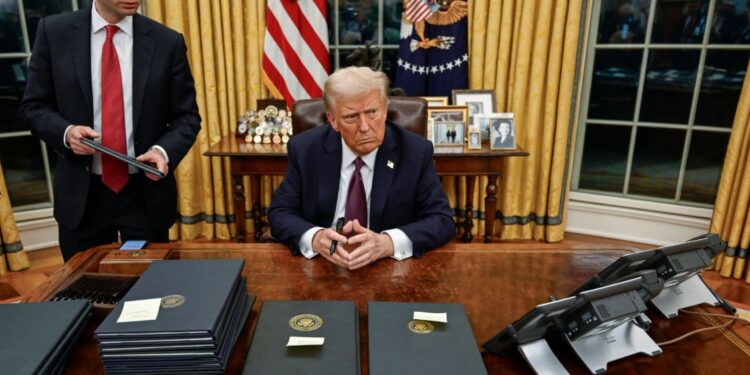The Trump administration’s unprecedented review of more than 55 million foreign visa holders creates significant uncertainty for Seattle’s internationally dependent economy, where thousands of tech workers, students, and families could face deportation under the expanded “continuous vetting” process.
The State Department confirmed Thursday that all visa categories are subject to ongoing scrutiny for indicators including criminal activity, visa overstays, and terrorism connections. The review examines law enforcement records, social media accounts, and information from foreign governments to identify grounds for visa revocation and potential deportation.
Since January, the administration has revoked more than 6,000 student visas and more than twice as many total visas compared to the same period last year. Officials report that approximately 4,000 cases involved direct law violations including assault and DUIs, while 200 to 300 revocations cited terrorism-related concerns.
For Seattle’s technology sector, the enhanced scrutiny threatens access to international talent that has driven the region’s growth. Companies like Microsoft, Amazon, and Boeing employ thousands of workers on various visa categories, making them vulnerable to disruptions if key personnel face revocation and deportation under the expanded review process.
The University of Washington, Seattle University, and regional community colleges serve substantial international student populations whose enrollment contributes millions annually to the local economy. The fourfold increase in student visa revocations and new mandatory in-person interview requirements may significantly affect future international enrollment and current students’ ability to complete programs.
The policy’s broad scope extends beyond traditional security concerns to create ongoing uncertainty for established international communities throughout the Seattle area. Visa holders who previously felt secure in their status now face potential revocation based on previously overlooked violations or newly discovered information from expanded monitoring.
Immigration advocates warn that the climate of uncertainty could affect cooperation with law enforcement and participation in civic activities among international residents. The fear of deportation may influence decisions about employment, housing, and family planning for thousands of people who have built lives in the Seattle region.
The administration’s emphasis on protecting national security and public safety reflects policy priorities that may fundamentally alter communities built around international diversity. Seattle’s identity as a global city depends heavily on attracting and retaining international residents who contribute essential skills and cultural richness to the region.
The time-intensive nature of reviewing 55 million records ensures this process will affect international residents for months or years, creating prolonged uncertainty for individuals, families, and employers who depend on stable visa status for planning and operations.
Local businesses and institutions face planning challenges around recruitment, project continuity, and strategic development as they navigate uncertain access to international talent. Some organizations may need to develop alternative strategies for accessing global expertise or reconsider their dependence on international personnel.
The State Department’s mandate for in-person interviews for nearly all visa applicants adds administrative burden that could deter applications and create backlogs affecting Seattle’s ability to attract international students and workers. This requirement represents a significant departure from previous streamlined processes for certain visa categories.
The review’s unprecedented scale demonstrates the Trump administration’s commitment to comprehensive immigration policy changes that extend far beyond border security to affect established immigrant communities in regions like Seattle that have built their economy around international connectivity and talent attraction.






